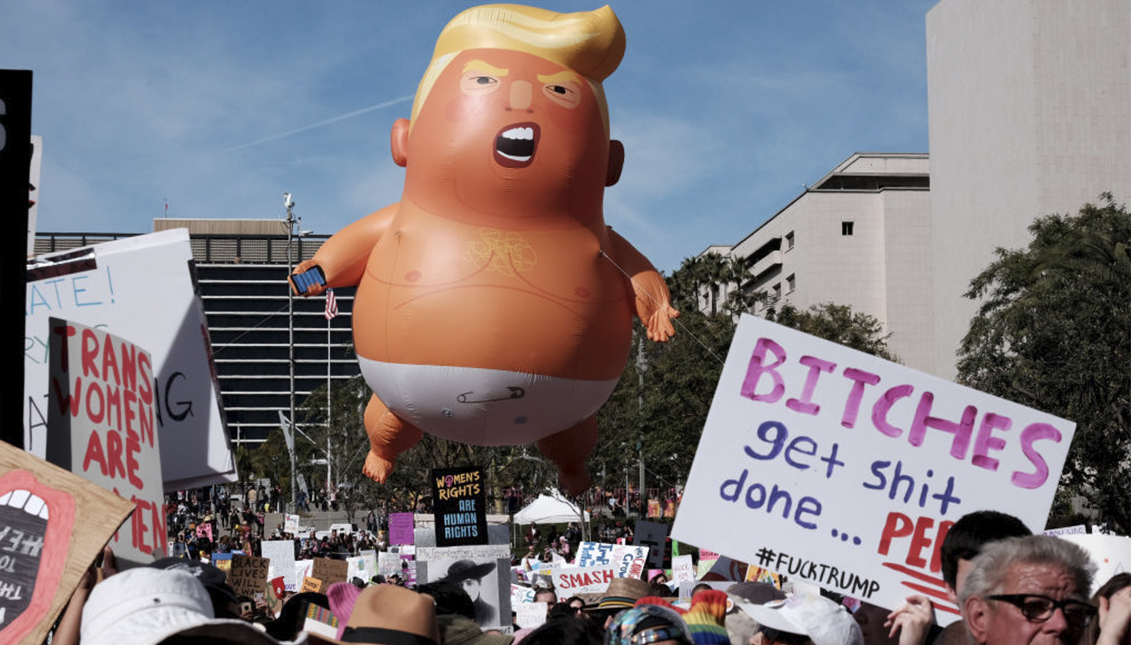
Women's March 2020: A white celebrities' feminism?
The 'impeachment' against Trump, climate change and the fight for reproductive rights were the focus of the fourth edition of this march, not without…
You can't be a Democrat without being a feminist; however, the annual women's march, celebrated last Saturday in more than 180 cities in the United States, highlighted the internal tensions of a movement that is just as vocal against Trump's anti-immigration policies that leave racialized minorities out of the picture.
At least that was, according to NBC's report, what happened in the Los Angeles march, with a glaring absence, that of Black Lives Matter, the collective that put the spotlight on police violence against African American citizens in the country and was invited to participate, but not as a speaker.
"Maybe they should change the name to the White Women's March," BLM posted on Twitter.
Meanwhile, the ACLU of Southern California and actress/writer June Diane Raphael, a scheduled speaker, walked out of the event in solidarity with the organization and the lack of representation of racialized people, something that BLM founder Melina Abdullah said happened at demonstrations in Chicago, Houston and Washington as well. Although, according to the organization of the Women's March, this year's objective was to highlight collectives and individuals "who have the mission of encouraging people to vote."
Such as the wife of California's governor, Jennifer Siebel, who took the stage to call Trump a "predator-in-chief," haranguing the crowds to turn the tables on the election and celebrating some of the women's victories in recent years, such as the creation of the #MeToo movement.
While media outlets like NYT echoed how this mass protest-something less tumultuous than in previous years- has been organizing since Donald Trump became president of the United States in January 2017, it seemed to be back to square one:
RELATED CONTENT
Criticism of the president demanding his removal from office and jokes and mockeries against him abounded among the demands of the other signs, the latter focusing on reproductive rights, immigration, and climate change, making the Republican the protagonist of the day.
For this reason, perhaps, the National Administration of Archives and Records decided to rig a photograph of the Women's March of 2017, blurring the references that were not very "friendly" with the president, which is why they had to apologize.
"It's all about Donald Trump," Laurie Kaczanowska, 66, a retired criminal prosecutor who attended the Washington march from Pennsylvania, told NYT.
"This march is about the many issues facing women and families, so climate change, of course, is at the forefront. But here and now we have to pay attention to protecting democracy. Because I think that's in danger."
Trump's unpunished allegations of sexual abuse and his neoliberal policies that prey on minorities and the poor are inseparable from the protests, although some, like New York Post columnist Miranda Devine, are more "offended" by the pussy hats worn by the protesters or the language used in their protest songs than by the president's public misogyny:
"Who do these angry feminists think they are with their vulgarities and cartoon vaginas? Men?" Devine wrote.
While tens of thousands of people took to the streets crying out for social justice, the self-serving politicization of these types of events and the ugly vice of pointing fingers and reducing everything to a postcard feminism make it clear that a deeper conversation and greater unity is needed among the collectives threatened by patriarchal neoliberalism that we receive like golden rain from on high.











LEAVE A COMMENT: